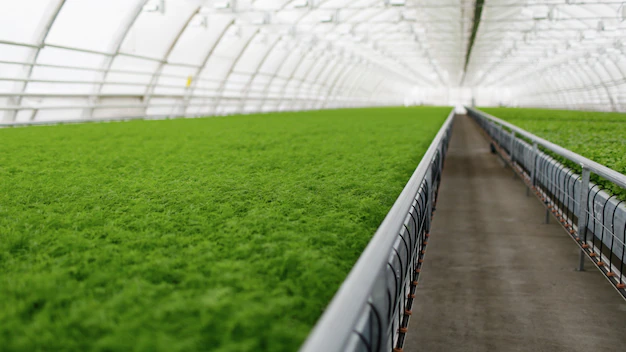Greenhouse technology offers several benefits for agriculture, particularly in areas with challenging climate conditions or limited arable land. Here are some of the key benefits of using greenhouse technology:
- Extended Growing Season: Greenhouses create a controlled environment where temperature, humidity, and light can be adjusted to optimize plant growth. This allows for an extended growing season, enabling farmers to grow crops year-round regardless of the external climate. This is especially beneficial in regions with short growing seasons or harsh weather conditions.
- Climate Control: Greenhouses provide protection against extreme weather events such as frost, hail, heavy rain, or strong winds. By controlling the temperature and humidity inside the greenhouse, farmers can create an ideal environment for plant growth. This control reduces the risk of crop failure and improves overall productivity.
- Increased Crop Yield: Greenhouse technology enables farmers to optimize growing conditions for crops. With precise control over factors such as temperature, light intensity, and irrigation, plants can grow faster and more efficiently. This leads to higher crop yields compared to traditional open-field cultivation.
- Water Conservation: Greenhouses allow for efficient water usage through controlled irrigation systems. Water can be supplied directly to the roots of plants, reducing evaporation and minimizing water wastage. Additionally, the enclosed environment of a greenhouse helps to reduce water loss through evapotranspiration, further conserving water resources.
- Pest and Disease Management: Greenhouses act as a physical barrier against pests, insects, and diseases, reducing the need for chemical pesticides. The controlled environment also allows for the implementation of integrated pest management (IPM) techniques, such as the introduction of beneficial insects, to control pests naturally. This reduces the reliance on harmful chemicals and promotes environmentally friendly farming practices.
- Improved Quality and Consistency: Greenhouse cultivation offers better control over crop quality and consistency. By managing environmental factors, farmers can ensure optimal conditions for plant growth, resulting in uniform crop development, improved flavor, color, and nutritional content. This is particularly advantageous for specialty crops or high-value produce.
- Efficient Space Utilization: Greenhouses maximize land use efficiency by utilizing vertical growing systems, hanging baskets, or shelves. This is especially valuable in areas with limited arable land or in urban environments, where space is limited. Greenhouses allow for high-density cultivation, enabling farmers to produce more food within a smaller footprint.
- Reduced Environmental Impact: Greenhouse technology promotes sustainable farming practices. By reducing the use of chemical pesticides and fertilizers, conserving water, and minimizing soil erosion, greenhouse cultivation has a lower environmental impact compared to conventional farming methods. Greenhouses also provide a buffer against cross-contamination with neighboring crops, preventing the spread of genetically modified organisms or pathogens.
Greenhouse technology offers a range of benefits that contribute to increased productivity, efficient resource utilization, and environmentally friendly agriculture. It provides a viable solution to address challenges posed by climate variability, limited land availability, and the need for sustainable food production.
Join 'Farmers Mag' WhatsApp Channel
Get the latest Farming news and tips delivered straight to your WhatsApp
CLICK HERE TO JOIN






